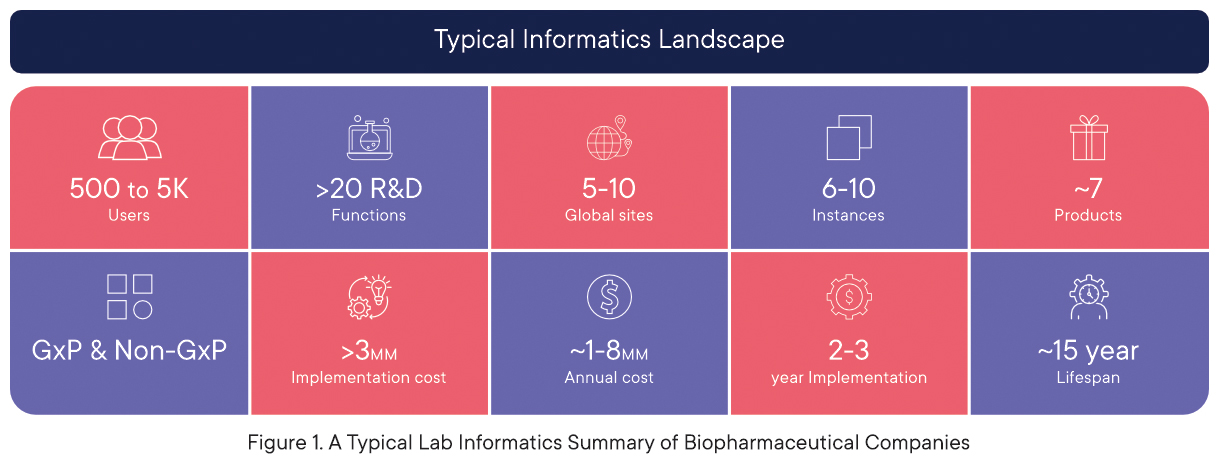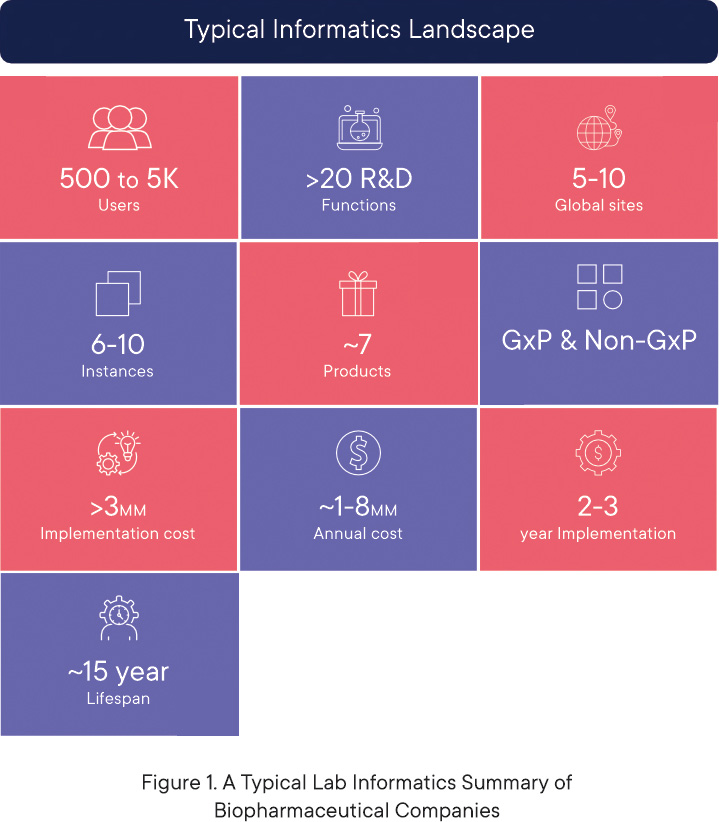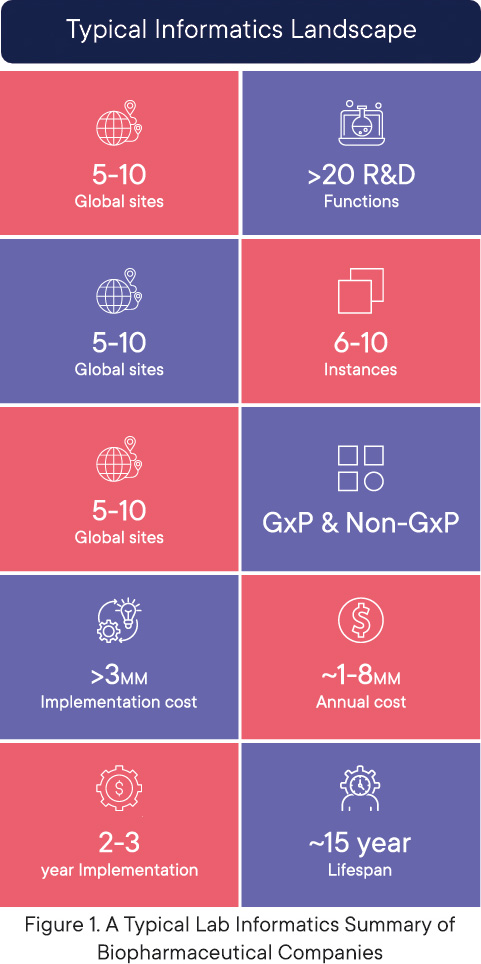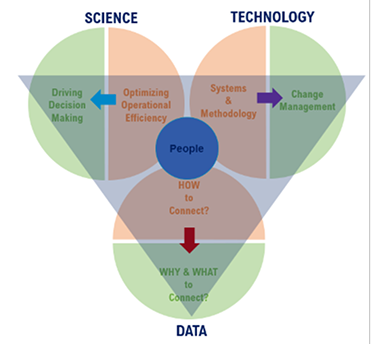Introduction
The R&D industry faces several challenges in adopting new technological advances. Often, customers are forced to switch technologies due to advances, and at other times, it is to evolve and make the best use of them. Lab Informatics vendors offer a variety of solutions, but not all will necessarily fit the scientists' needs.
Key Challenges faced by Scientific R&D
- Struggle to use data-driven insights because the availability of specialized data scientists/analysts, and tools with appropriate business domain expertise are limited.
- Labs generate an enormous amount of data so the demand to manage and store lab data is continually rising, which demands a platform and data storage and integration strategy.
- Delivering 'Lab of the future’ focuses on the changes to immersive work behaviours, automation and harmonization of data is collection is not yet common place.
- Complex and new scientific domains and workflows (like NGS, novel modalities, etc) are constantly cropping up, despite most organizations’ over-dependence on shadow IT and "patchwork" approach to scientific workbenches leading to limited enterprise empowerment in these areas.
- Upgrading and maintaining legacy systems is a constant demand and can be tricky if platforms do not evolve with the science and workflows.
To add to the above key challenges faced by R&D, many of the core informatics platforms are approaching or are well over a decade in age. Often these legacy systems are monolithic that are heavily customized, making them extremely difficult to maintain and upgrade.
We often see one of two “vendor selection” routes taken by our customers.
- The lab personnel drive vendor selection themselves, given their familiarity with the lab and processes, leaving informatics to pick up the pieces or
- Informatics systems being selected by IT without business involvement.
The figure below depicts a general lab informatics summary of small to large biopharmaceutical companies.






